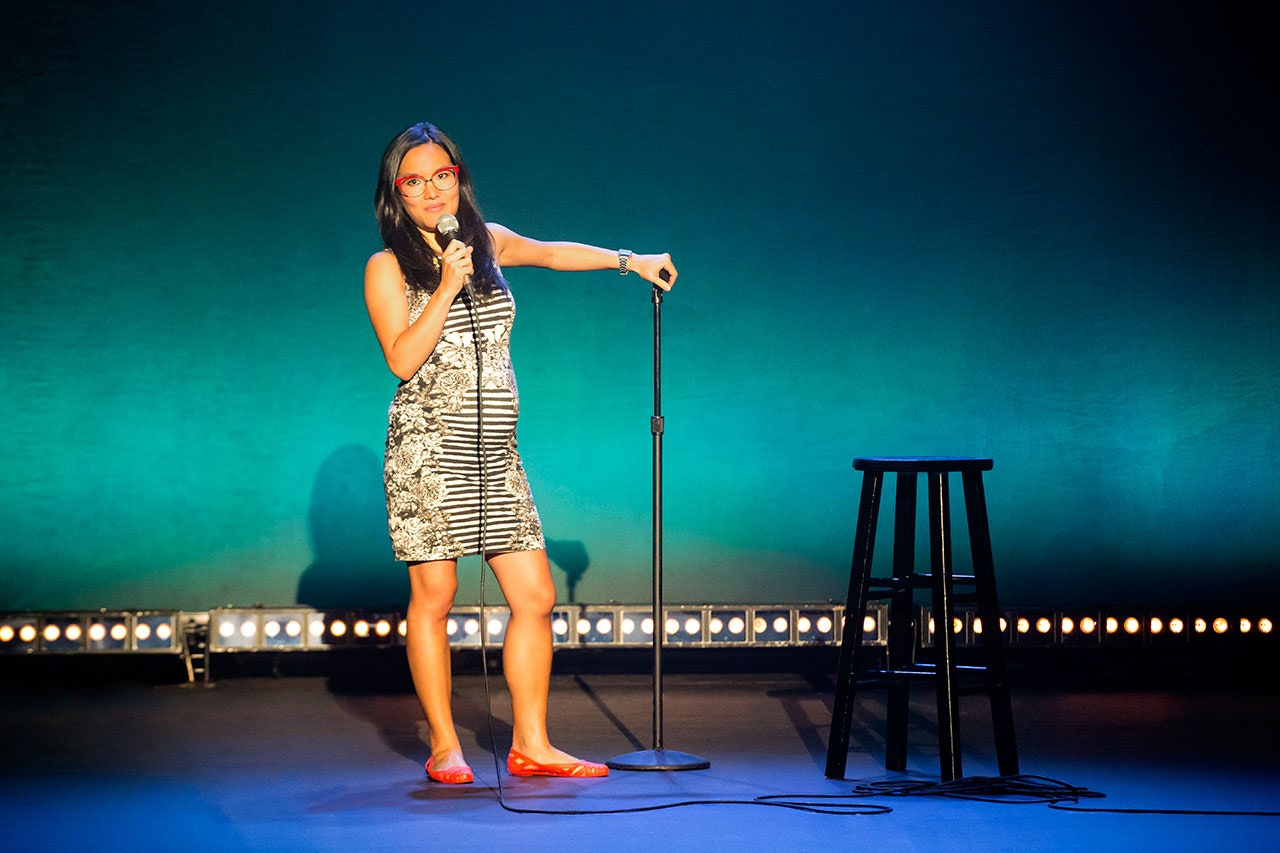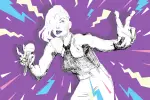Like many people recently, I turn to books for comfort in difficult times. So, when I was forced to move out of my college dorm due to the coronavirus and return home for the foreseeable future, I sought out laughter and distraction in actress and writer Ali Wong while reading her book, “Dear Girls: Intimate Tales, Untold Secrets, & Advice for Living Your Best Life.”
Having seen Wong’s two Netflix stand-up specials, I thought I knew what I was getting into; Wong’s raunchy style has the ability to not only entice, but shock laughter out of audiences and she doesn’t shy away from anything. But this memoir — written as a series of letters to her two daughters — allows Wong to overshare even more than usual, not only with comedy, but also with advice and guidance, creating a rounded experience that really feels like learning from a mother.
https://www.instagram.com/p/B5jHtejAL7_/
Wong’s two daughters — the recipients of the memoir’s wisdom — have been a large part of their mother’s stand-up and writing career: The comedian was seven months pregnant with her first child, Mari, during the taping of her Netflix special “Baby Cobra,” and again with Nikki during the filming of “Hard Knock Wife.” The specials solidified Wong’s style, which she maintains in her writing of “Dear Girls.”
She doesn’t censor herself, but instead shares stories of past relationships and adventures as learning experiences that have led her to where and who she is now. The first letter begins with an anecdote where Wong guesses the distance to the moon is 5 billion miles, as opposed to the real answer of around 238,900. “That day, my co-workers found out my secret: I’m a f—ing idiot,” she writes. Wong tells the reader that she was able to write “Dear Girls” after embracing her own style, which was inspired by a letter her late father wrote to her before he passed.
Wanting to leave her daughters with something when she dies “besides a collection of oversized glasses for [them] to sell on eBay,” Wong tries to give them some information she wishes she’d been able to talk about with her father. She tells stories of traveling to Vietnam to connect with her culture and eating a fertilized duck embryo, mooning audiences at her earlier stand-up gigs and how she trapped their father, Justin Hakuta, who wrote the afterword.
She doesn’t just leave it at the funny stories; it’s Wong’s honesty in the somewhat vulgar parts of her comedy and writing that give weight to the guidance she offers readers, because why would she start lying now? “You have suffered enough,” she writes about motherhood. “If you can make it easier, make it easier, and don’t feel guilty about it.”
She dives into the harder things, such as making it as an Asian American comic and co-parenting, which are only made more compelling by her writing and humor. The letters bring Wong down to earth as she tells her daughters about her struggle to get closure on her miscarriage — knowing that “the goddess queen” Beyoncé also had a miscarriage gave her “great comfort”— and how she would do several stand-up shows a night when she was just starting out, which led to her holding her keys on the late walk back to her car, “always ready to scream and take a swipe at someone, just in case.”
Wong recounts her start in comedy with great detail, in hopes of helping them understand how hard it can be. She tells her daughters about men in the industry who tried to tell her that being a female minority was a lucky thing for her career. “Yes,” she writes, “because historically that has always been the winning combo for recognition and success in the entertainment industry.”
Her candor about misogyny and gender roles doesn’t stop there, though, as she goes into great detail about co-parenting and how equality within it is rare. Women, as Wong writes, are seen as cold or selfish when they have passions outside of their families, but men are celebrated and praised.
It’s evident in her writing that Wong has experienced this criticism and it’s had an impact on her, but “Dear Girls” is one step toward raising her daughters to be powerful and independent women just like their mother. Overall, it’s a comedic memoir, but her ability to transition from a story about bombing in front of Eddie Murphy to her relationship with her mother brings an unexpected life to it.
In any context, this book is an entertaining and cathartic read. In quarantine, feeling sequestered from the rest of the world, laughing as hard as I did while reading seemed to restart my brain and allow me to pull out of my funk. “Dear Girls” has a balance of Wong’s unfiltered heart and her unfiltered filthy jokes that work together to provide a reading experience akin to catching up with an old friend, something I felt I desperately needed as the pandemic shut down everything.
The intelligence of her writing and personality is clear from the first paragraph and the personal nature of it all not only made my stomach hurt from laughter but provided a deep feeling of comfort from a woman I’ve only ever seen on a screen. I fear I’ll be comparing comedic memoirs to hers for a long time.
https://www.instagram.com/p/B6LoZTcgGrc/
Wong’s daughters aren’t allowed to read the book meant for them until they’re at least 21 years old, she writes. If they ever choose to read “Dear Girls,” I can only assume it will be slightly (or extremely) mortifying, but they still have a while before that happens. But if they do, they’ll be able to understand more about the woman and artist their mother is and how hard she worked to get to where she is. They’ll be able to laugh with her and learn from her.
While Wong stretches her storytelling beyond strict comedy in “Dear Girls,” it’s clear in every line that she’s a comedian. “Stand-up is not about being pretty or looking your best,” Wong writes, “It’s about being yourself and being funny, period.” She’s got both covered.

















